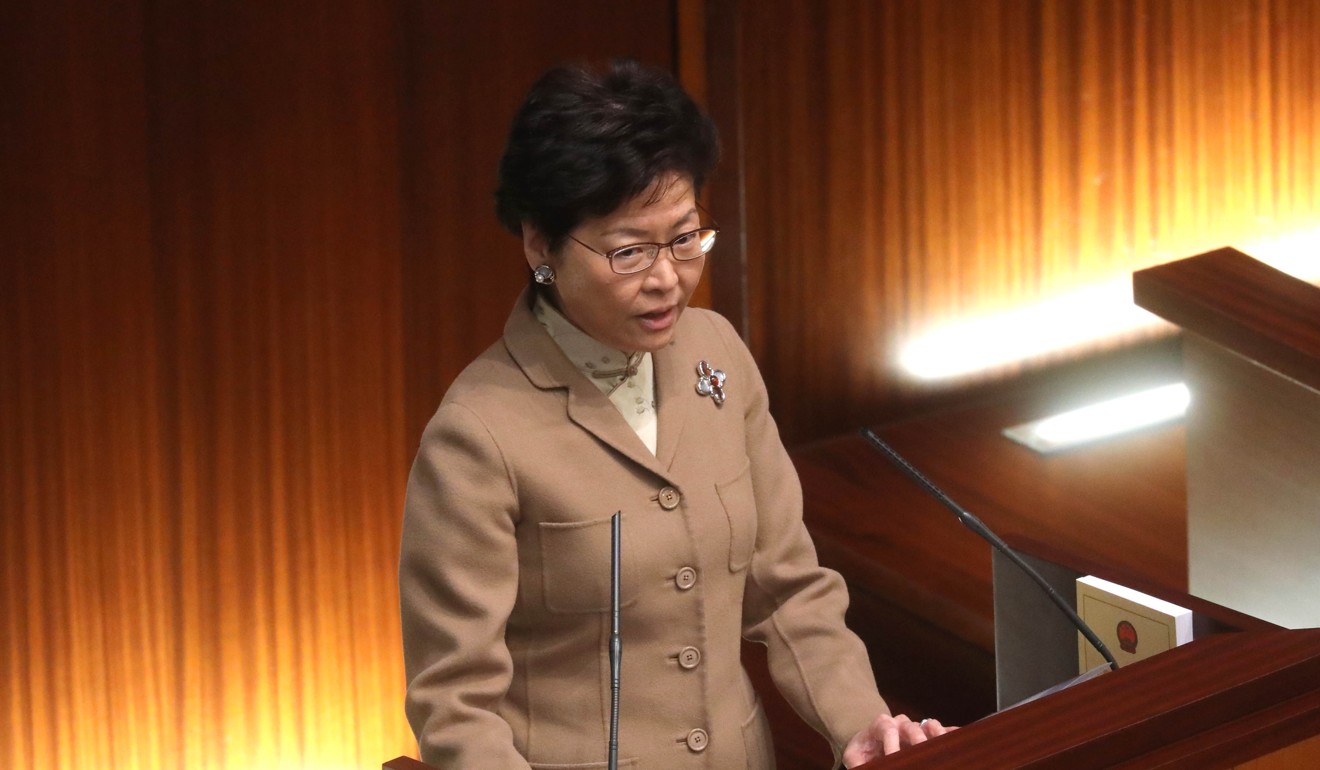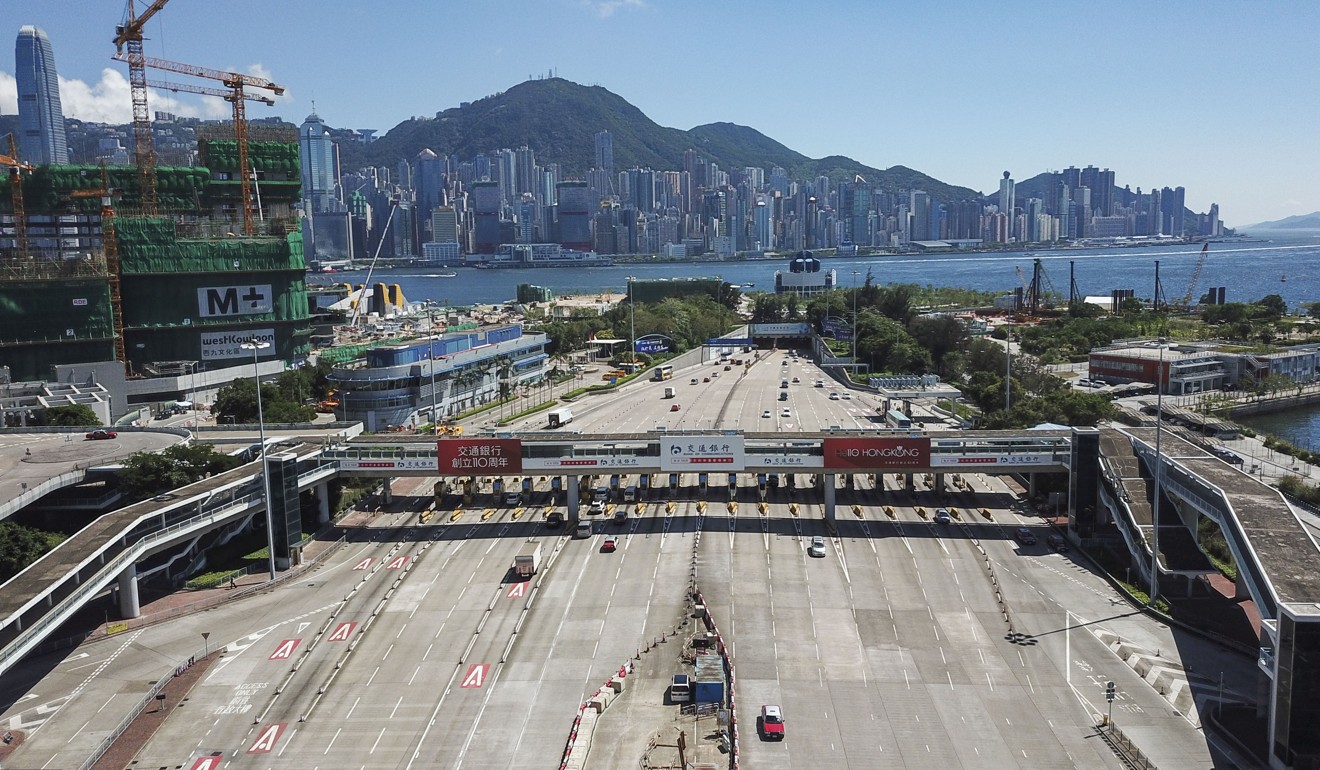
Plan to cut rebates for Hong Kong property owners may be dropped entirely, says Chief Executive Carrie Lam
- City’s leader makes announcement after further investigation of present set-up
- Lam cites example of developer who owns 15,000 properties but passes rebates on to tenants

The plan to cut rebates for Hong Kong’s property owners may be dropped, the city’s leader said on Thursday.
Chief Executive Carrie Lam Cheng Yuet-ngor made the announcement after lawmakers who had called for the change suggested the present system was not as unfair as first thought.
At the moment, property owners receive a rebate for each property they hold. Under the proposal, concessions would be granted on only one property per owner, meaning developers and people with multiple properties would get fewer concessions on their rates.
“A week ago, we looked at information about the biggest property owners. The biggest owner held more than 15,000 properties,” Lam told lawmakers at a question and answer session.

“I was curious as to who that is. I can’t tell you here, but now we know that the owner had already passed the rates rebates to the tenants.
“This shows that what may appear unfair on the surface may not be so in reality, when you care to look into the matter.”
The proposal, submitted last month to the Legislative Council panel on financial affairs, followed a half-year review prompted by calls for a fairer way of providing the rebates on property rates, an indirect tax levied on all kinds of properties.
In recent years the government has offered one-off rates rebates as a relief measure to ease the burden on property owners.
For the 2018-19 financial year the concession is subject to a ceiling of HK$2,500 (US$320) per quarter for each rateable property. It is estimated it will cost the government about HK$17.8 billion.
Some lawmakers had criticised the system, and said it mainly benefited big developers and wealthy landlords.
But in the Legco panel meeting last month other lawmakers raised concerns that the changes could hurt the middle class, and those who earn rental income from owning several properties.
Some also pointed out that it was not cost-effective to spend HK$300 million to build a database of property owners, just to implement the changes.
The panel also studied government data about the top 10 property owners in the city, and agreed the curb in rebates “may not be in line with the principle of genuine fairness”. As a result, the panel passed a non-binding motion asking the government shelve the plan.
“We can drop this proposal – we did this only because lawmakers criticised [the existing arrangement] – if you passed a motion asking us not to do it, binding or not,” Lam said on Thursday.
The estimated total of rates payable by the top 10 ratepayers in 2018-19, without concessions, was about HK$1.87 billion, while the concession amounted to HK$257 million.
In more than 82 per cent of the tenancies of the top 10, mainly owners of industrial or commercial properties, the bulk of concessions were rebated to the tenants in accordance with the rental contract, and not enjoyed by the landlords.
In another matter, Lam confirmed she had personally been involved in the proposal to divert traffic between the city’s three cross-harbour tunnels, one of which is plagued by chronic congestion.

Earlier, Secretary for Transport and Housing Frank Chan Fan said a plan would be presented to the legislature on January 23 to raise fees for the Cross-Harbour Tunnel and Eastern Harbour Tunnel. Tolls for the privately run Western Harbour Tunnel would be lowered.
Lam is understood to have lobbied in Beijing, where one of the shareholders of the western tunnel is headquartered.
While legislators lauded what they called the government’s goodwill, many expressed concerns about the potential effects of large-scale toll increases on the two publicly run tunnels.
“Every year, the government is urged to do something to divert the tunnels’ traffic. But then again if lawmakers ask us to stop, we’ll just stop,” Lam said.